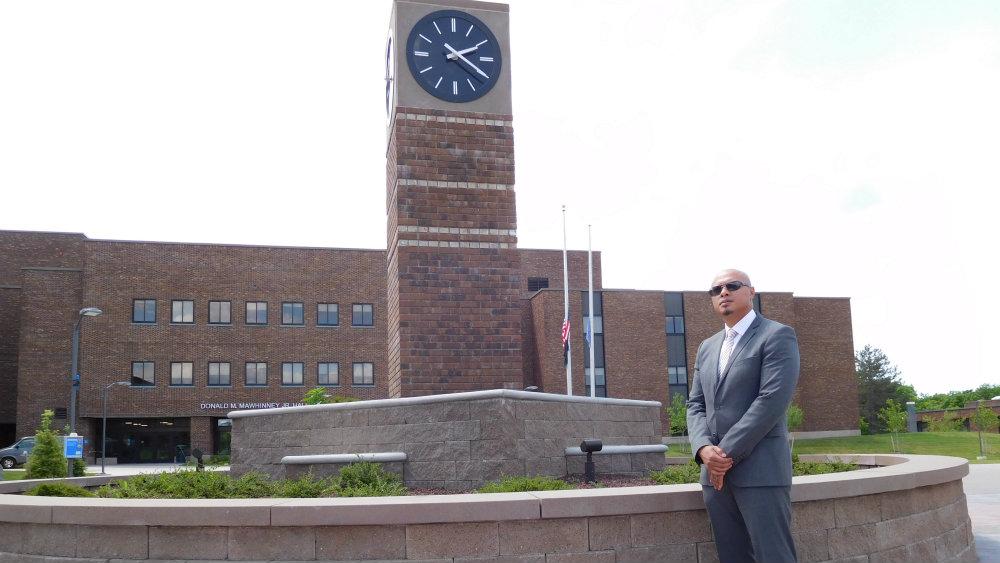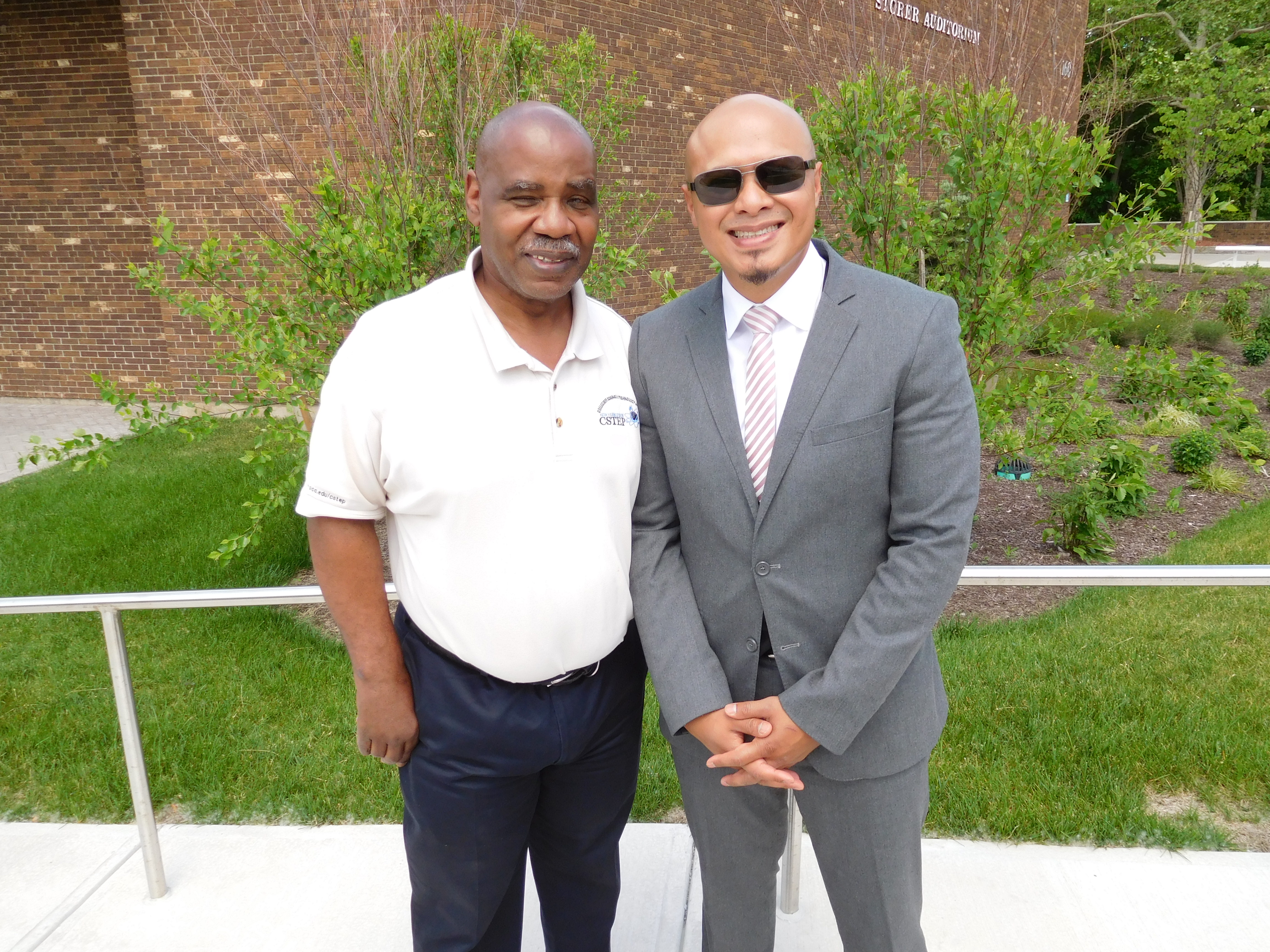on
June 14, 2014
Alumni
Image

Dr. Rahim on the renovated Mawhinney Quad, which remains a memorable place for him from when he was a student.
From early on, Dr. Emad Rahim faced a tragic and difficult road to success, where for a time, he did not know if the next day was going to be his last. Born in Cambodia, he and his family were forced into concentration camps by the Khmer Rouge where his father and older brother were killed. They escaped to a refugee camp in Thailand before being granted asylum and finding a new home in Brooklyn. However, coming to America did not find the peace one might expect “It was like going from war zone to war zone so I as a young child I was exposed to a lot of violence and caused a lot of angst and unrest inside of me,” Rahim said.
A gunshot to the leg while walking the streets as a child ended his stay in Brooklyn as his family packed up and moved to Syracuse to be closer to family. He grew up on the west side and went to Fowler High School. “It was a tough neighborhood but I always knew I wanted to finish high school, but I was not putting much effort in, so my guidance councilor called me into her office sophomore year.” There, she told Rahim to take his GED and move on with his life, he had missed so much school that there was no way he could make up the work. Distraught and angry, he was found in a hallway by a councilor named Willie Dowdell who, after what was a life altering talk, told Rahim if he could meet him halfway then he would see his graduation day.
True to his word, Dowdell helped Rahim through the last two years and he was able to graduate with a non-regents diploma in 1997. “He saved my life, with his mentorship and guidance I would have been lost and would have ended up at best working a menial job or at worst being an addict or dead,” he said. Dowdell would continue to push Rahim and helped him enroll at Onondaga Community College (OCC) where Rahim would continue to find himself. “OCC offered me intimate space, where I was given the necessary support to succeed because the faculty knew the students on an individual basis, which supported my developing self-esteem.”
While at OCC he was encouraged to seek help for a possible learning disability in an effort to try and identify what was causing him to struggle. The root problem of his learning difficulty was later identified as dyslexia while he attended Empire State College. Once he knew the problem, his advisors would put together an academic plan for him, which proved to put him on the fast track to success. “For the first time in my life I knew what I had to do and all of my struggles were swept away, just having a plan in place made all the difference in the world to me.”
From there, Rahim flourished by finishing advanced degrees and his Doctorate in Management from Colorado Tech University in 2009. When he finished at Tech, Rahim had co-authored 32 publications, which put him on the career fast track in higher education until 2011 when he began to question his success. This drive to keep learning sent him to Tulane (2011), Maryland (2013) and eventually Harvard University (2015) for post-doctoral work. “For me, Harvard was the impossible. Here is this refugee from Cambodia who barely graduates high school and is now collaborating with some of the brightest academic minds in the world – amazing!”
Today, Rahim is an Endowed Chair and Director for the Project Center of Excellence at Bellevue University in Omaha, NE. However the job provides him with the flexibility to work remotely so he and his family returned to Syracuse and purchased a house only a few blocks from where he grew up on the west side. “When we moved back, we wanted to be part of the change in the community so we are looking to get involved and help nurture the city back to what it once was,” he said. Despite all his accolades though, Rahim remains humble and looks to help and appreciate people he encounters, a trait he acquired from Mr. Dowdell and through his time at OCC. “Mr. Dowdell and my faculty and councilors at OCC could have given up on me several times, but they pushed and have stayed in touch throughout my career, which is why I am where I am so now it’s my turn to give back.”



